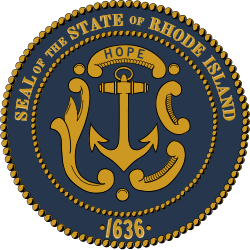| |||||||||||||||||
| |||||||||||||||||
Pastore: 50–60% 60–70% Murphy: 50–60% 60–70% 70–80% 80–90% | |||||||||||||||||
| |||||||||||||||||
| Elections in Rhode Island |
|---|
 |
The 1946 Rhode Island gubernatorial election was held on November 5, 1946. Incumbent Democrat John Pastore defeated Republican nominee John G. Murphy with 54.27% of the vote.



